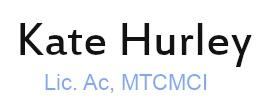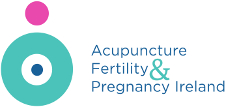Frequently Asked Questions
- Who is acupuncture suitable for?
- How does acupuncture work?
- Is your acupuncture service compatible with the major insurance companies?
- What should I expect on my first appointment?
- How many treatments will I need?
- Should my doctor know?
- Is acupuncture safe?
- What conditions can acupuncture treat?
- Is there any solid research to support the benefits of acupuncture?
Question: Who is acupuncture suitable for?
Answer:
Many people come to acupuncture for help with specific symptoms or conditions, and some because they simply feel generally unwell. Others choose acupuncture to enhance their feeling of well-being. Acupuncture is considered suitable for all ages, including babies and children. It can also be used alongside conventional medicine.
Question: How does acupuncture work?
Answer:
Acupuncture is based upon medical principles which have been developed, researched and refined for over 2000 years.
Scientists believe that it works by stimulating the nervous system which then activates mechanisms that stimulate healing and promote physical and emotional well-being. Unlike conventional Western medicine, acupuncture emphasises focus on the individual and hands-on care – rather than drugs and technology – and does not carry a risk of adverse side effects.
Acupuncture generally works by correcting a person’s underlying imbalances which, if left untreated, can create ill health or loss of function and general well-being. When a person is perfectly balanced, they stay well and function optimum levels.
Question: Is your acupuncture service compatible with the major insurance companies?
Answer:
Yes, if you have pre-approval for acupuncture there should be no problem. I have been approved by major health insurers, including VHI, Irish Life Health and Laya Healthcare.
Question: What should I expect on my first appointment?
Answer:
The first acupuncture treatment combines a diagnosis and treatment. You will be asked about your current symptoms, what treatment you have received, your medical history, your diet, digestive system, sleeping patterns, and emotional state. I will also feel your pulses on both wrists and ask to look at your tongue.
Please bring along a list of any medical and herbal supplements you may be taking, as well as any blood tests and hospital investigations you may have had as this will aid the diagnosis.
The acupuncture points used are not always close to the part of the body where you are experiencing the problem. For example, although you might have hurt your back, needles may be inserted into your hand or foot.
Don’t be alarmed by this, it is done because acupuncture treats the whole body as an interconnected system, in such a way that change in one area can affect the rest.
Question: How many treatments will I need?
Answer:
The number of acupuncture treatments you need depends on the complexity of your illness, whether it’s a long-standing or recent condition and your general health.
For example, you may need only one treatment for a recent wrist sprain, while a long-term illness may require treatments for several months to achieve good results.
What you do at home in between treatments can make a huge difference in how quickly you heal.
If you act on suggestions regarding dietary therapy, heating/cooling an injury, and lifestyle changes, you can speed up your recovery dramatically.
It is easier to give an estimate after a consultation when more information about the patient and their medical history has been made available.
Question: Should my doctor know?
Answer:
If you have been prescribed medication you should tell your doctor that you are planning to have acupuncture. You should also tell your acupuncturist about any medication you are taking as this may affect your response to the acupuncture treatment.
Question: Is acupuncture safe?
Answer:
Acupuncture has a very sound track record. Each patient is treated with single-use, sterile needles that are disposed of after the treatment.
The same safety precautions are taken with the needles as you would expect at a hospital – however the needles used in acupuncture are significantly thinner.
Responses to treatment can sometimes include tiredness or mild dizziness, and on occasion mild bruising may occur – however all reactions are short-lived.
Question: What conditions can acupuncture treat?
Answer:
Acupuncture focuses on improving the well-being of the patient as a whole and as such it can help people with a wide range of ailments.
The British Acupuncture Council has compiled a research page that includes an A-Z list of conditions and how acupuncture may help with them.
In addition, the World Health Organisation (WHO) has a PDF of research (large file – see page 33 onwards) dedicated to Acupuncture.
Specifically, they list the symptoms or conditions for which acupuncture has been proved – through controlled trials – to be an effective treatment:
Allergic rhinitis (including hay fever)
Biliary colic
Depression
Dysentery
Dysmenorrhoea, primary
Epigastralgia
Facial pain
Headache
Hypertension, essential
Headache
Hypertension
Hypotension
Induction of labour
Knee pain
Leukopenia
Lower back pain
Malposition of fetus, correction of
Morning sickness
Nausea and vomiting
Neck pain
Pain in dentistry
Periarthritis of shoulder
Postoperative pain
Renal colic
Rheumatoid arthritis
Sciatica
Sprain
Stroke
Tennis elbow
Question: Is there any solid research to support the benefits of acupuncture?
Answer:
Yes, in addition to the resources above provided by the World Health Organisation and the British Acupuncture Council, there are also:
– The National Center for Complimentary and Integrative Health has a fact sheet that covers research into acupuncture and a wide range of health conditions.
Can’t find the answer you’re looking for?
I’d love to answer your question, please contact me to discuss further.
Home
About
Conditions Treated
Pregnancy
Fertility
Cosmetic Acupuncture
FAQ
Prices & Clinic Hours
Location
Contact






